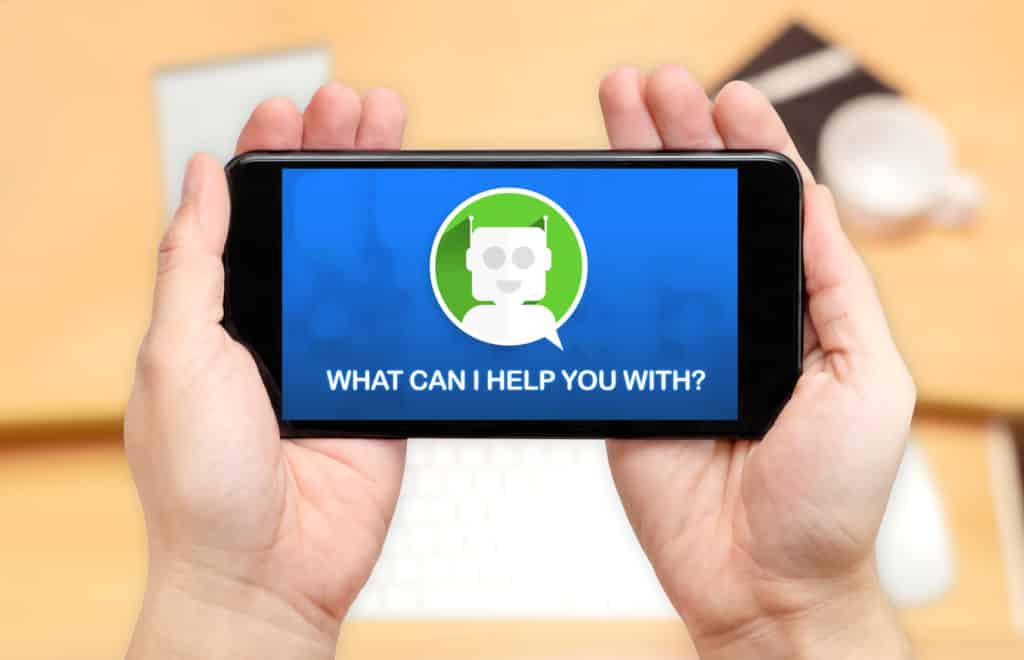Any serious conversation about the future of data and analytics invariably turns to the topic of artificial intelligence. The past year has seen AI surge in popularity, with high profile corporations and personalities getting behind what many people believe could be the biggest technological watershed moment since the advent of the internet.
Indeed, many companies have seriously ambitious goals for their AI investments and it is fully expected that materially higher productivity, profitability and efficiency levels will result for those companies and the users of their products.
Over the course of the next few months Dataspace will be examining the impact of AI on the different industries with which we work. Even if you aren’t in those industries, each provides lessons that are broadly applicable. Today we begin, with insurance.
Chatbots and Natural Language Processing
According to Accenture, the insurance industry will see dramatic improvements in customer experience through the use of automation for simple claim handling and individual risk-based underwriting processes. Many insurance companies already use some form of AI-equipped bot to handle customer inquiries that don’t require human involvement.
Chatbots employ what is known as natural language processing, a field concerned with the interaction between computers and language as it is spoken by mere humans, like us. NLP is based on algorithms that improve over time by gathering input from users to correct their behavior.
Insurance startup Lemonade, which makes use of a Chatbot named Maya to handle claims, made headlines last year when a claim was processed and paid through the app in less than three seconds. While many claims are complex enough to still require human intervention, Lemonade hopes that one day 90% of their claims will be processed solely using NLP algorithms.
In fact, those looking well into the future believe that NLP will one day render computer programming languages obsolete and that all programming will be accomplished through natural language voice commands. But let’s not get ahead of ourselves…
More automation of claims management
AI image analysis startup Tractable hopes to automate claims management for insurance companies. By using a decade worth of photos to train a deep learning algorithm, they have developed image recognition technology capable of predicting the total cost of damages with the same accuracy as an experienced adjuster.
Users submit photos of their accidents and the incurred damage, and the algorithm assesses the value of the damages. This ensures that insurance companies do not pay more for damages than is fairly due and avoid unnecessary repairs suggested by cheating body shops.
Telematics
As the quantity of data available to insurance companies grows, so does their ability to optimally assess risk. Telematics are a way of collecting more of this data that will allow insurers to link human behavior directly to the pricing of premiums. Telematics is the long-distance transmission of user behavior data to insurance companies. With the knowledge of driving habits, insurers will tailor their policies to shift premium costs away from safe drivers to risky ones. These technologies will incentivize good behavior among people when it comes to responsible driving, leading a healthy lifestyle and more.
It seems inevitable that all vehicles in the near future will send data to insurance companies to reward drivers that exhibit responsible habits and penalize those with high-risk tendencies. Telematics will allow for the expansion of usage-based insurance (UBI), which will adjust premiums based on how much and how responsibly you use your car, bike, boat or whichever futuristic mode of transport we have at our disposal in the coming years.
Similarly, health insurance companies will likely offer the option to wear sensors that monitor physical activity, eating and drinking habits, and more indicators of healthy and unhealthy lifestyles, to adjust premiums accordingly.
Wider implications of automation
Insurance exists because humans are flawed creatures that are adept at making mistakes. A significant anticipated benefit of automation is the prospect of eventually reducing errors, omissions and accidents to negligible levels as it replaces our responsibilities as humans.
So what happens when 100% of the cars on the road are driverless and life continues on without any of the rainy-day events that make auto insurance companies necessary? Many experts believe that premiums will at the very least become dramatically cheaper as accident claims fall precipitously.
Further, there are predictions that self-driving technology will greatly reduce car ownership, changing it to more of a usage-based model. When you need a car, you’ll use an app to contact the car company and the vehicle will navigate itself to your location to pick you up. In this scenario, not only will premiums go down but, also, the number of customers will also decrease.
Tesla has ambitions to one day include insurance in the cost of its driverless cars, as they have already noticed significant declines in accidents with the advent of their Autopilot technology.
Forward-thinking insurers are already considering the effect that automation will have on their businesses, and coming up with mitigation plans.

